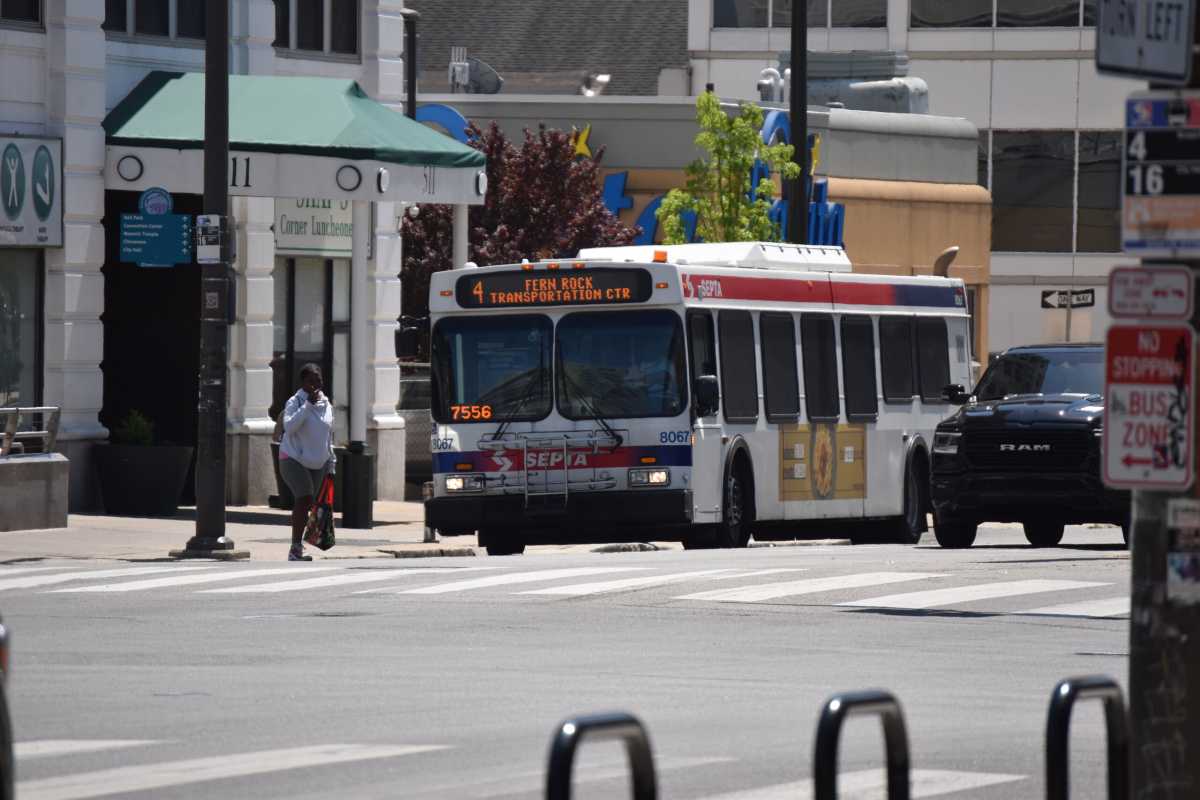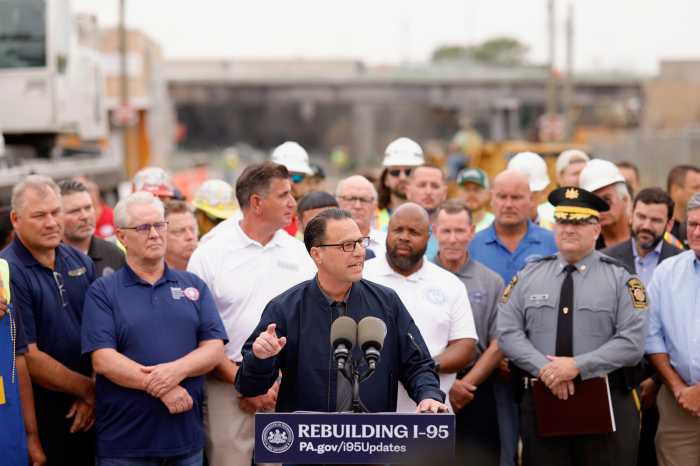SEPTA, thanks in part to a recent $80 million grant from the federal government, is preparing to build the charging infrastructure needed to sustain a fleet of completely electric buses.
Currently, nearly all of the authority’s 1,400 buses are hybrids, with the last of the all-diesel vehicles set to be retired before the end of the year, SEPTA spokesman Andrew Busch said. The plan is to begin transitioning to fully electric in 2027 and have zero gas emissions by 2040.
Twenty-five electric buses went into service in 2019 but were pulled from the streets soon after when cracks were discovered. One of the vehicles caught fire at a maintenance facility last year. Busch said SEPTA is working with the manufacturer, Proterra, to fix problems.
The federal grant was funded through President Joe Biden’s bipartisan infrastructure law and will pay for electric upgrades at the Frankford, Germantown, Midvale, Southern, Victory and Frontier bus districts.
Last year, the Federal Transit Administration gave $23 million to SEPTA for similar projects at the Allegheny, Comly and Callowhill bus depots.
More than $1.2 billion is being spent this fiscal year as part of the FTA’s Low-No initiative to fund the cost of transitioning to low-or-no emission public transportation vehicles, according to the Biden administration.
SEPTA is also hoping that Washington will step in to reimburse labor and equipment costs related to the collapse of I-95 in Northeast Philadelphia. The authority added trips to the Trenton Regional Rail Line and lengthened trains to boost capacity.
U.S. Sens. John Fetterman and Bob Casey, along with the city’s Congressional representatives, wrote a letter June 15 to U.S. Department of Transportation leaders urging them to approve funding for SEPTA.
No money has been allocated, though discussions are ongoing, Busch said. He added that SEPTA has been tracking expenses related to I-95 service adjustments but that no cost estimate was available yet.
Since I-95 reopened June 23, SEPTA has continued to run three extra trips on the Trenton Line, which runs along the interstate and serves the eastern portion of Northeast Philadelphia and Bucks County.
Added seating capacity has also remained on the West Trenton and Fox Chase lines.
While the roadway was closed, there were six additional trains running on the Trenton Line. SEPTA scaled back when I-95 traffic began flowing again, which allowed the authority to return trains to the Cynwyd Line. Shuttle buses had been operating to and from Overbrook Station to accommodate the increased Trenton service.
The Trenton Line, during the nearly two-week highway closure, saw ridership increases of 15 to 20%, and the Fox Chase, West Trenton and Warminster lines experienced bumps between 12 and 15%, Busch said.
“We’re hopeful we’re going to keep some riders, if not a large portion of the riders,” he said. “Some people have maybe found that SEPTA is a more convenient way of getting around.”



























